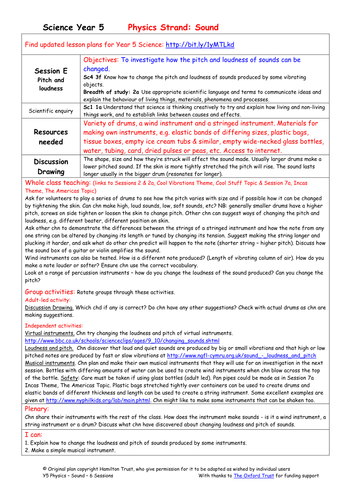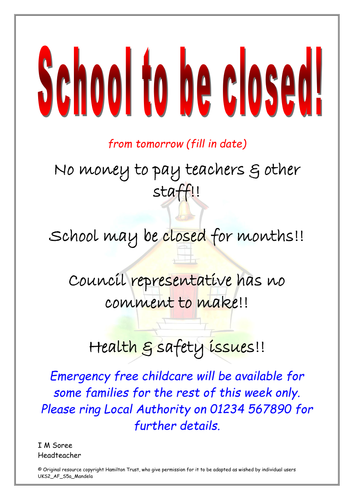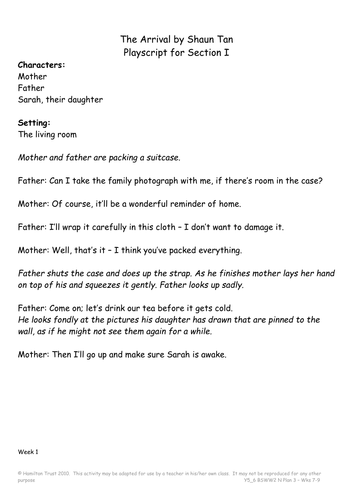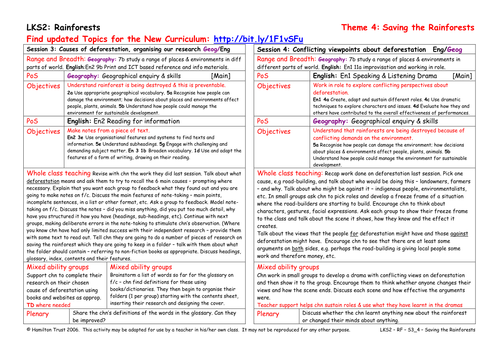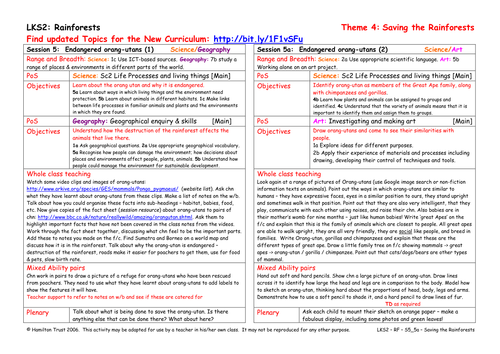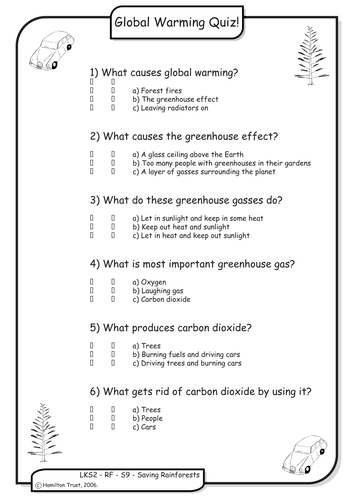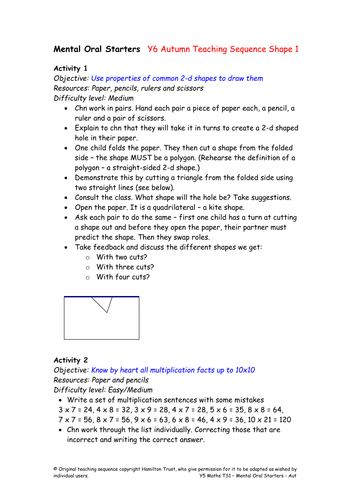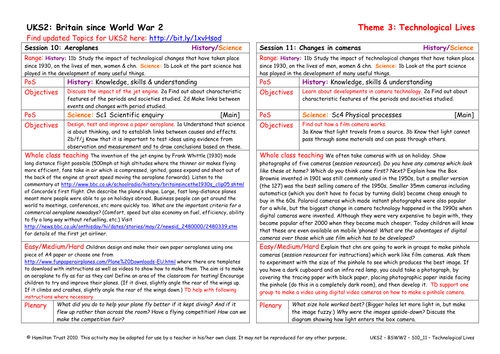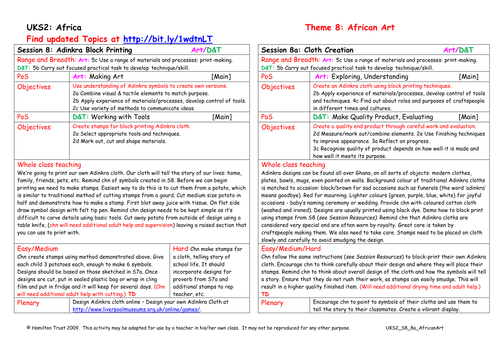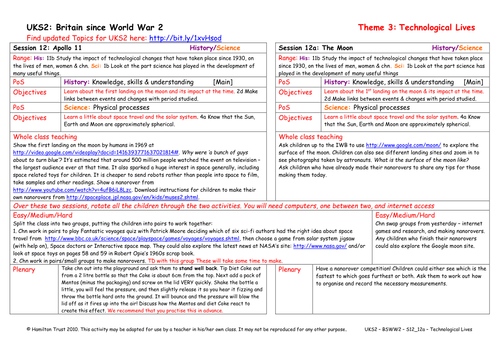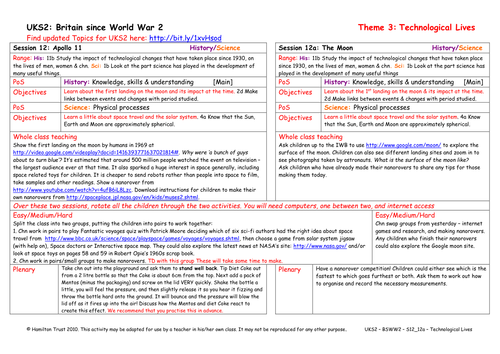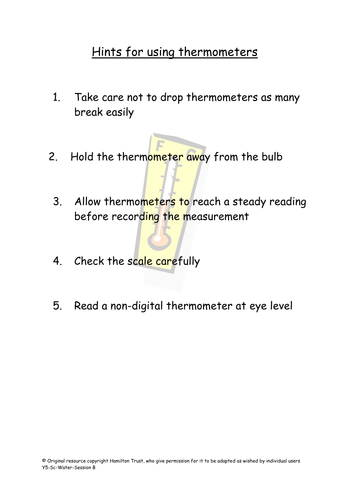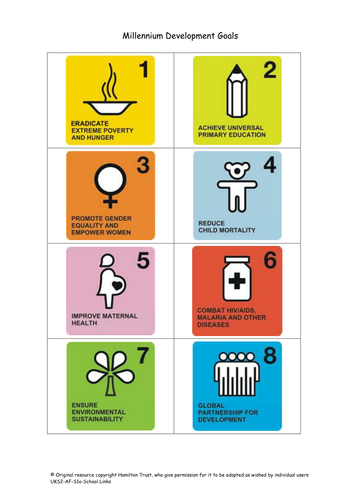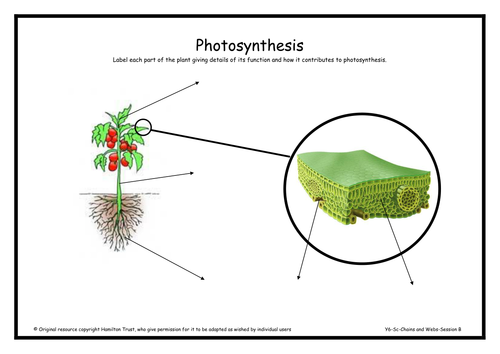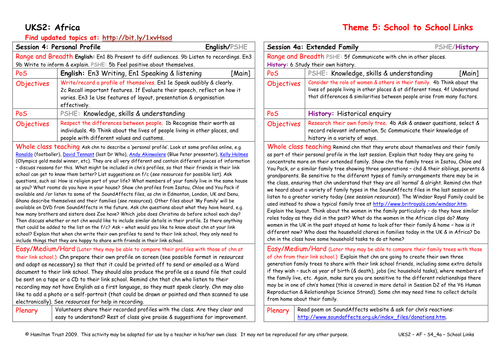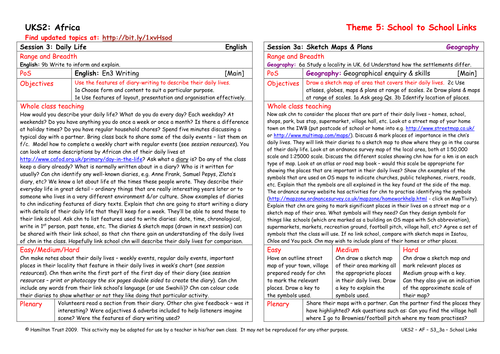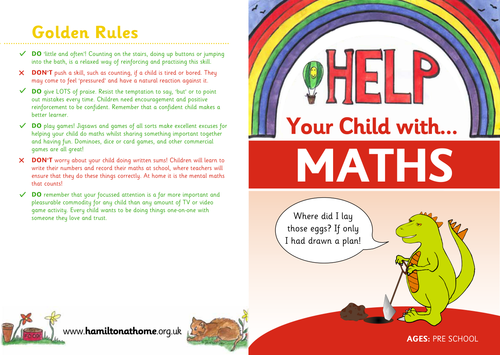
397Uploads
10045k+Views
11646k+Downloads
All resources

Pitch and Loudness
Demonstrate how to make high, low, soft and loud sounds with drums, string instruments and wind instruments. Children investigate changes of pitch and loudness of virtual instruments and create their own instruments to investigate in session F.
Suitable for Y5 pupils.

The Right to Education
Through role play children consider for themselves the impact of no access to school.
They plan a poster campaign or write a persuasive letter to reopen their school. Links to Children’s Rights to Education.
Suitable for years 5 and 6.

Refugees and human rights weeks 7 - 8
Consider different genres then read a variety of stories about refugees and asylum seekers. Children summarise stories and write sequels and playscripts based on stories they have read.
Finish with a This is Your Life programme for one of the characters.

Causes of deforestation, organising our research
In this session children find out how to create key word notes and organise their information in folders with contents pages. Children continue to use non fiction book features and the internet to locate information effectively.

Endangered orang-utans (2)
Orang-utans are humans closest relative! Children find out more about the great ape and other great apes like chimps and gorillas, before using sketching and shading techniques to draw Orang-utans for display.

Effect of Global Warming
In this session children take a closer look at the causes of global warming and look at the long term effects. How can they do their part to reduce the greenhouse effect? They put it to the test in the Great Greenhouse Effect Quiz!

Mental Oral Starters :Y6 Aut Sequence S1
Mental and oral starters for Year 6 Autumn Teaching Sequence S1.

Changes in Cameras
Children look at cameras from different decades and then make a pinhole camera, experiment to see which size pinhole works best.

Cloth Creation
Inspired by the Adinkra cloths worn on special occasions all over Ghana, children create their own versions. Children think carefully about overall design of their cloth and how they will block print using stamps.

Apollo 11
Children watch the first manned landing on the moon, then build a nanorover or play online games about space travel.

The Moon
Children explore the surface of the moon using a website, carry out the activity they didn’t do in session 12, then have a nanorover race.

Elastic band investigation
S – t – r – e – t – c – h is the key word in this session as elastic bands are safely tested in the classroom. What happens as the mass suspended from the elastic band increases? Data on graphs will make the outcome clear.
Suitable for Year 6 pupils.

Freezing and boiling
Children practise using thermometers to measure temperature accurately. They find the freezing and boiling points of water and discuss what happens if you add salt to the liquid. Use coloured ice cubes to investigate properties of solids and liquids. Suitable for Y5 pupils.

Needs and Wants
Look (again) at the list of UN Children’s Rights. Discuss whether or not children feel they have all their rights and explain how various people and organisations can help achieve them if not. Learn some words and phrases in link school’s language (or Swahili).
Suitable for years 5 and 6.

Erosion
Children consider the different types of erosion, water, wind, glacial, sea and soil.
In groups each with a different type of erosion children research for information and then draw cartoon strips explaining how the types of erosion occur.

Photosynthesis
Children check in on the patients from Session A and find out how they create their own food in the form of sugars using water, light and carbon dioxide. They consider the role of each plant part in photosynthesis.
Suitable for Y6 pupils.

Personal Profile
Use celebrity profiles to decide what children might include in their personal profile to introduce themselves to their link school friends. Listen to Ghanaian children describing themselves and their families. Prepare own profiles on screen or as recordings.

Sketch Maps and Plans
Sketch maps of the local area and plans of homes and other places will help their link school friends understand the children’s daily lives as described in their diaries. Look at OS maps and street plans. Children use symbols and a key to clarify their maps and plans.
Suitable for years 5 and 6.

Pre-School Maths Leaflet
A leaflet or parents of Pre-Schoolers giving them advice on how to use maths with their children in everyday life.

